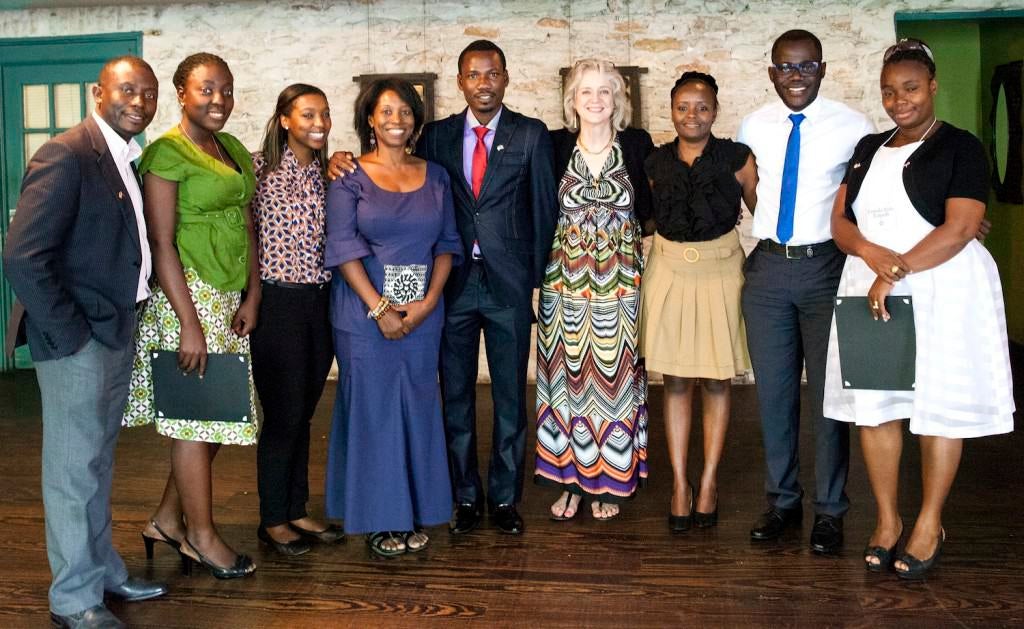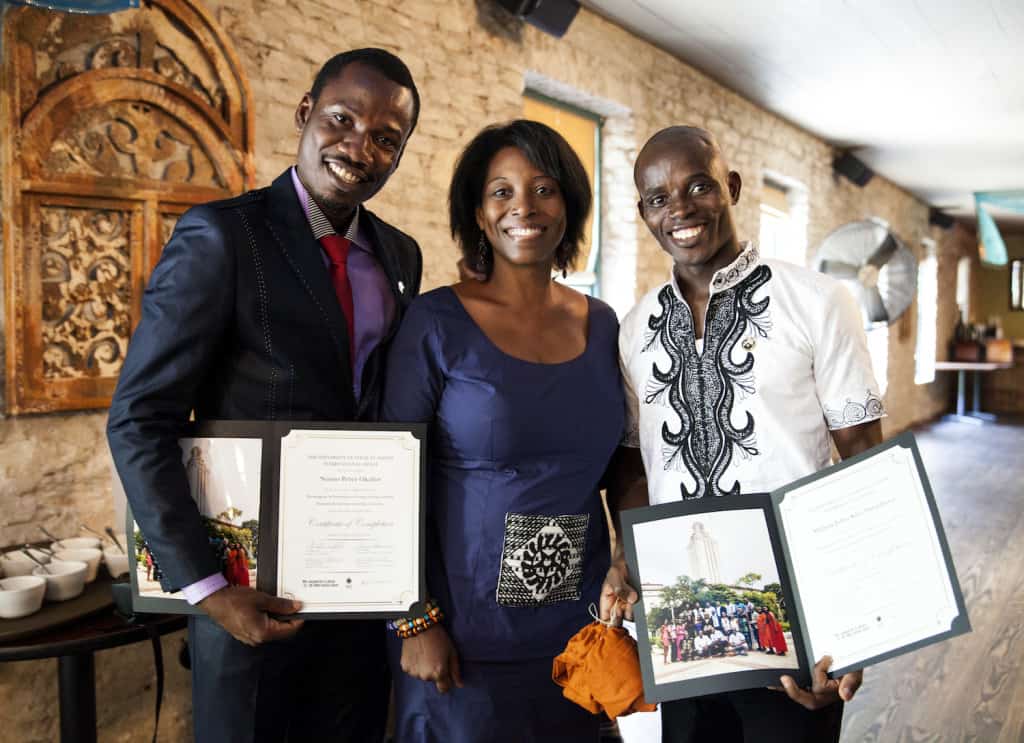Dr. Dorie Gilbert has been busy this summer with the Mandela Washington Fellowship for Young African Leaders, President Obama’s signature effort to invest in the next generation of global leaders and further the growth and stability of Africa.

As part of this program, 25 competitively selected emerging entrepreneurs from Sub-Saharan Africa came to The University of Texas at Austin for six weeks of classes, community service, networking, and more. The goal was to provide them with entrepreneurship tools and help them develop skills to grow businesses back home and better serve their communities. We talked with Dr. Gilbert about this initiative.
Why is this fellowship program important?
The program reflects a trend towards a new development model based on young African leaders solving their own socio-economic problems through entrepreneurial ventures. We have been working with fellows from eighteen different African countries. Based on their own observations, they have identified unique solutions to the pressing social problems that exist within their communities, from unemployment, infant and maternal mortality, and climate change to the lack of local technology incubators for African innovations.
What were your impressions of the group?
I was deeply impressed by their initiative and energy, and fascinated by the wide variety of entrepreneurial ideas they brought. To name a few: Dizando Mvemba, from Angola, is a computer science professor who wants to increase employment among Angolan computer science graduates by training them to become outsource programmers for global high-tech companies; Tawanda Kembo, from Zimbawe, built a real-time online booking platform to increase tourism and economic development in his country; and Faith Mangope from South Africa, has a business called the New-G, which trains nascent entrepreneurs in successful business strategies. Of the 500 total Mandela Washington Fellows in the United States, Faith was selected to introduce President Obama at a summit in Washington, D.C. (watch an MSMBC video of Mangope’s introduction of President Obama here).
What was your main role?
I worked closely with Dr. Anita Leffel, assistant director of UT San Antonio’s Center for Innovation and Technology Entrepreneurship. We guided the fellows through the Entrepreneur’s Academy, a series of training modules developed by Dr. Leffel and her colleague Cory Hallam. These modules encouraged fellows to think through every step to develop or expand the entrepreneurial idea they brought.
I have traveled extensively to West Africa, so my key contribution was to translate the curriculum for the African context, and to keep the focus on internal solutions grounded in the concept of ubuntu, an African principle of interconnectedness that means “I am what I am because of who we all are.” Because the fellows grew up experiencing firsthand many of the issues that they are trying to address, they are devoted to solving the problems in a way that recognizes their interconnectedness to others in their communities and also to each other as future African business leaders. Most of them were focusing on social entrepreneurship and prioritized acting together in mutual benefit within and across counties. They learned a lot from each other and formed a lasting bond.
I also helped a group of seven fellows submit, on a short notice, grants to the U.S. African Development Foundation (USADF). The fellows had to conceptualize and present their problem statement, solution, business plan and financial milestones in four pages and eight slides, with only one week advance notice! I am proud to say that each of them received $25K to be used towards their projects.
Posted August 4, 2014. By M. Andrea Campetella. Pictures by Sara Combs.


